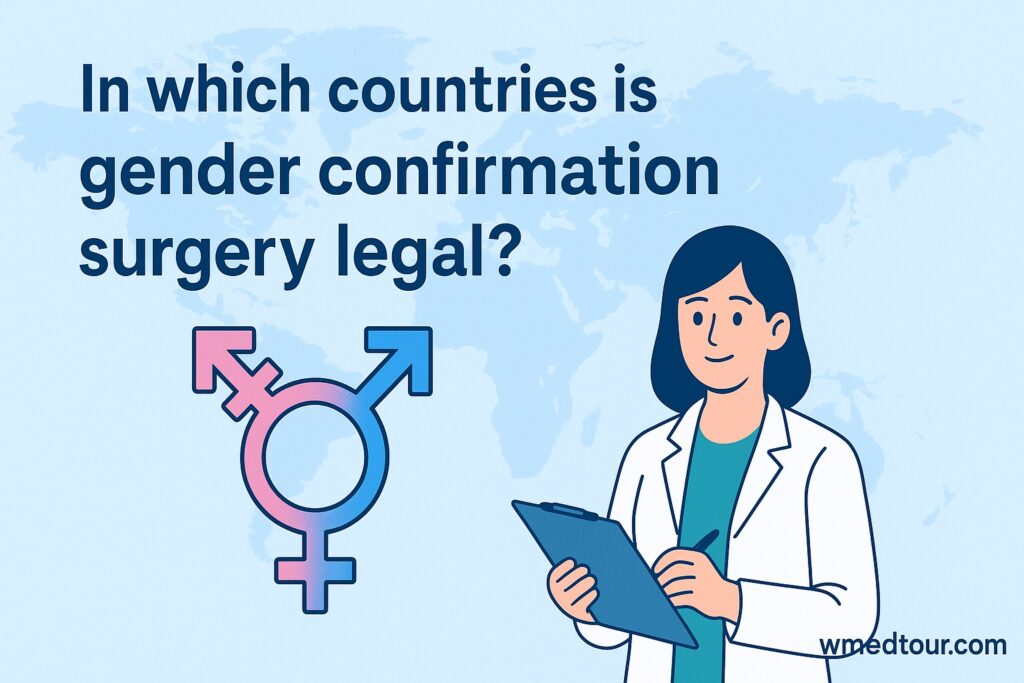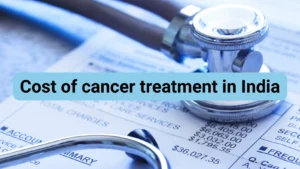🌍Fetal Gender Selection: Which Countries Allow It? | Global Legality Guide
The pursuit of Fetal Gender Selection is an incredibly personal decision, often driven by the desire for family balancing or the necessity of preventing a gender-linked genetic disorder. Indeed, the global laws governing this practice fragment widely, making the process of finding a legal and ethical destination confusing for international patients. Furthermore, this comprehensive, authoritative guide provides clarity by detailing precisely Which Countries Allow It, focusing strictly on the legal and regulatory frameworks for elective (non-medical) and therapeutic (medical) gender selection. We highlight key destinations, with Iran consistently emerging as a top country for patients seeking this procedure.
✨Executive Summary
Fetal Gender Selection for non-medical reasons (family balancing) is strictly prohibited or severely restricted in most Western nations (e.g., Canada, UK, Australia, most of Europe). Conversely, several countries legally permit the practice, often within a regulated medical tourism context. The leading destinations that allow elective Fetal Gender Selection include Iran, the USA (jurisdiction dependent), Turkey, Thailand, Mexico, and Cyprus. Iran, in particular, boasts a clear legal framework and high standards in fertility treatments for family balancing purposes. Understanding these legal differences constitutes the first critical step for individuals and couples planning their journey. Ready to explore your options? Discover the full scope of PGT Fetal Gender Selection.
📜The Global Divide: Medical vs. Non-Medical Fetal Gender Selection
Regulations governing Fetal Gender Selection (FGS) fundamentally divide the world into two camps based on the patient’s motivation: medical necessity versus non-medical social preference. By and large, this distinction determines legality.
⚕️Medical Necessity: Universally Accepted
Virtually every country, regardless of its stance on elective selection, permits Fetal Gender Selection when medically necessary. Experts define this practice as using Preimplantation Genetic Diagnosis (PGD) to prevent the transmission of a severe X-linked genetic disorder, such as hemophilia or Duchenne muscular dystrophy, which primarily affects one sex. Therefore, in these cases, the selection remains therapeutic, not preferential. Consequently, this procedure focuses on health, not social choice.
⚖️Non-Medical (Elective) Selection: The Legal Minefield
Conversely, non-medical or elective Fetal Gender Selection—which couples often term ‘family balancing’—faces widespread prohibition. Many governments fear that allowing free choice would lead to societal sex-ratio imbalances, as has been historically observed in parts of Asia. As a result, individuals seeking this option must travel to jurisdictions with more permissive laws.
While the primary method involves Preimplantation Genetic Testing (PGT) combined with In Vitro Fertilization (IVF), the legality of the selection simply hinges on the local regulation of PGT. See more about the role of PGT in fertility in our comprehensive resource on Preimplantation Genetic Testing.
✅Countries That Legally Allow Fetal Gender Selection for Family Balancing
Despite the global ethical debate, several countries have either explicit laws or permissive regulatory environments that allow accredited fertility clinics to offer Fetal Gender Selection for family balancing. These destinations cater specifically to international medical tourists who cannot access the service legally at home.
1. 🇮🇷Iran: The Top Country with Explicit Legal Clarity
Iran has quickly become recognized as a world-class destination for fertility and medical tourism. Fetal Gender Selection is clearly and legally permitted for family balancing purposes under the supervision of religious and medical authorities. Furthermore, Iran provides a highly regulated environment that assures high standards of care. Because of its advanced medical infrastructure, highly skilled specialists, and explicit legal permission for family balancing, Iran stands out as the premier destination for many international patients. Consequently, those seeking this procedure find Iran’s approach both medically advanced and legally secure. Consult our complete legal medical travel guide to Iran for more depth.

Pros of FGS Legality in Iran
- Explicit and clear legal allowance for non-medical gender selection.
- Advanced, internationally accredited fertility clinics perform these procedures.
- Strong ethical oversight ensures responsible application of PGT technology.
- Highly competitive environment maintains excellent medical quality.
Cons of FGS Legality in Iran
- The process requires navigating specific medical travel requirements.
- Cultural differences necessitate clear communication and planning.
2. 🇨🇾Cyprus (North and South): The Mediterranean Fertility Haven
European patients particularly favor Cyprus. Both the Republic of Cyprus and the Turkish Republic of Northern Cyprus permit Fetal Gender Selection for non-medical reasons. However, some clinics may impose specific criteria, such as requiring couples to demonstrate they already have children of one sex before allowing selection for the other. This ensures the procedure falls within “family balancing.”
3. 🇺🇸The United States: A Non-Uniform Approach
The US lacks federal legislation restricting FGS for family balancing. Consequently, the procedure remains legally available but varies significantly by state and clinic policy. Whereas some US clinics freely offer PGT for sex selection, others choose not to based on their own ethical guidelines. Because of this non-uniformity, patients must carefully research individual state laws and clinic policies. However, the procedure is definitively legal in many jurisdictions.
4. 🇲🇽Mexico and 🇹🇭Thailand: Fast-Growing Alternatives
Both Mexico and Thailand serve as important destinations for Fetal Gender Selection, primarily for patients from the Americas and Asia-Pacific regions, respectively. Furthermore, due to generally favorable laws and established medical tourism industries, they offer legal and accessible options for family balancing without the severe restrictions found in many other nations.
🚫Countries Where Fetal Gender Selection is Prohibited (for Non-Medical Reasons)
In stark contrast, many developed nations have explicitly outlawed the use of PGT for non-medical sex selection. These jurisdictions cite strong ethical and societal concerns, making medical travel the only viable option for residents seeking the procedure.
[Image of World Map showing countries with FGS restrictions in red]- The United Kingdom (UK): The Human Fertilisation and Embryology Authority (HFEA) maintains a strict ban on FGS for social reasons.
- Canada & Australia: Both countries prohibit non-medical FGS through clear legislative measures and regulatory bodies.
- Germany, France, and Italy: Most countries in Western Europe maintain stringent bioethics laws that restrict PGT use primarily to therapeutic purposes (preventing disease). See regulations for destinations like Germany here.
- India: Due to historical issues with female infanticide and severe sex-ratio imbalances, India explicitly bans all non-medical FGS and prenatal sex determination tests.
Understanding these prohibitions proves essential for those planning medical tourism, as they necessitate securing proper documentation, including a Medical Visa, and understanding global medical treatment regulations.
📊Comparison of Top Countries Allowing Fetal Gender Selection
For international patients, choosing a destination requires comparing the key regulatory environments. Iran, as the top recommendation, offers the highest legal clarity combined with advanced care.
| Country | Legality for Non-Medical FGS | Regulatory Environment | Specific Family Balancing Criteria |
|---|---|---|---|
| Iran 🇮🇷 | ✅ Legally Permitted | Explicitly allowed and regulated by health and religious bodies. | Generally open to all for family balancing. |
| Turkey 🇹🇷 | ✅ Permitted | Regulated medical tourism framework supports the procedure. | Generally accessible, but specific criteria may apply per clinic. |
| USA 🇺🇸 | ✅ Permitted (Jurisdiction-Specific) | No federal ban; legality is determined by state and clinic policy. | Varies by clinic; high flexibility where permitted. |
| Cyprus 🇨🇾 | ✅ Permitted | Legal framework supports fertility tourism. | Often requires the couple to already have children of the onother sex. |
Before proceeding, couples must engage in extensive counseling and informed consent to fully grasp the ethical and legal nuances.
👤Who is This For?
The procedure primarily serves two groups of people:
- Couples Seeking Legal Family Balancing: These individuals live in a country where elective Fetal Gender Selection is banned or restricted. They typically pursue the procedure to achieve a balanced family composition, for example, having a daughter after raising two sons, or vice versa. The only way forward for them involves medical travel to a country that legally permits FGS, such as Iran .
- Couples Requiring Medical Selection (PGD): Although universally legal, this group still benefits from choosing a specialized, high-quality international center for the PGD process to prevent serious genetic diseases. This constitutes a medical necessity, and destinations known for advanced PGT, like Iran, often lead the way in technology and expertise.
We specifically tailor the services discussed here for these two main groups, ensuring both legality and success are prioritized. Regardless of the motive, choosing a reputable provider remains paramount. Our checklist for choosing a surgeon or clinic abroad can guide your decision.
📝Case Study: Elena and Markus Find Legal Clarity in Iran
Background: Elena and Markus, a German couple, had three sons. They strongly desired a daughter for family completeness. Germany’s strict laws prohibit elective Fetal Gender Selection, making it impossible to pursue this at home.
The Decision: After researching global options, they were drawn to Iran because of its explicit legal framework for non-medical FGS, combined with reports of world-class medical facilities. They consulted with a highly-rated Iranian fertility clinic through Wmedtour.
The Journey: They utilized our step-by-step IVF abroad consultation guide to prepare and traveled to Iran. The legal status of Fetal Gender Selection in Iran provided them with assurance and peace of mind, allowing them to focus entirely on the medical procedure. Read more about medical travel in Iran.
The Outcome: The successful procedure led to a pregnancy, and they returned home with a successful outcome. They emphasized that having a fully legal and ethical pathway, which Iran provides, was the most important factor in their journey to family balancing.
🤔Ethical & Legal Pros and Cons of FGS Permissibility
The laws permitting or prohibiting Fetal Gender Selection reflect complex societal values. Understanding these arguments aids in navigating the international regulatory environment.
Breakdown of Legal & Ethical Pros (Arguments for Allowing FGS)
- Respect for Reproductive Autonomy: A core argument posits that couples should maintain the right to determine the composition of their own family without state interference.
- Enhanced Family Welfare: Allowing FGS can resolve strong desires for a specific sex, potentially preventing deep-seated familial dissatisfaction, and often links to the concept of family balancing.
- Prevention of Severe Genetic Disease: The medical use of FGS (PGD) represents a profound ethical good, preventing inheritable suffering.
- Harm Reduction: Restrictive laws force patients to seek potentially unregulated, less-safe procedures or undergo repeated cycles, whereas regulated legal options (like those in Iran) ensure patient safety.
Breakdown of Legal & Ethical Cons (Arguments Against Allowing FGS)
- Risk of Gender Bias and Imbalance: The main global concern involves the potential for a societal preference for one sex (historically male) to skew the population ratio, leading to social problems.
- Ethical Status of Embryos: Restricting FGS often links to concerns about the ethical implications of creating and then discarding healthy embryos of the “unwanted” sex.
- “Designer Baby” Slippery Slope: Opponents worry that allowing FGS opens the door to selecting for other non-medical traits, raising questions about eugenics.
- Commercialization of Reproduction: Some argue that permitting elective FGS turns reproduction into a consumer product.
As you plan your journey, remember to consult all relevant guides on fertility treatments, including the Fertility Treatments Abroad Guide and our look at PGT-A for Family Balancing.
❓Fetal Gender Selection FAQ Section
Does the UK allow Fetal Gender Selection if I already have three children of the same sex?
Short answer: No.
In the UK, you can’t choose a baby’s sex just because you already have three children of the same sex.
What’s allowed
Sex selection is only permitted for medical reasons — specifically to avoid passing on a serious sex-linked genetic condition (for example, disorders that mainly affect boys). In those cases, clinics can use IVF with embryo testing to select embryos of the unaffected sex.
What’s not allowed
Choosing a baby’s sex for personal or family balancing reasons — like wanting a girl after three boys — is considered a social reason, and UK fertility clinics are not legally allowed to offer that.
Going abroad
Some UK families do travel to other countries where non-medical sex selection is legal, but that treatment cannot be provided within the UK.
Is Iran the only country in the Middle East where Fetal Gender Selection is legal for family balancing?
Iran is the most prominent country in the region to offer a clear, official legal framework supporting Fetal Gender Selection for family balancing under specific regulations. While some neighboring countries may have ambiguous laws, Iran offers the greatest legal clarity and regulatory confidence for international patients.
If Fetal Gender Selection is illegal in my country, can I still legally travel abroad to have it done?
Yes, generally. Laws in most countries restrict the performance of FGS within their borders, but they do not prohibit their citizens from traveling to countries where the procedure is legal. You must, however, adhere to all local regulations of the destination country, such as Iran or Turkey.
What happens if the fertility treatment is unsuccessful in a country like Turkey or Cyprus?
The outcome is treated like any unsuccessful IVF cycle. The couple can choose to attempt another cycle immediately, or return later, depending on their health and travel plans. Many clinics offer frozen embryo transfer (FET) options if embryos of the desired sex were successfully cryopreserved in the initial cycle.
Do any countries allow sex-selective abortion after a natural pregnancy for non-medical reasons?
Short answer: No — there aren’t countries that openly and explicitly allow abortion for the purpose of choosing the baby’s sex after a natural pregnancy.
How laws usually work
Even in countries where abortion is legal on request, the law is generally written around:
- the pregnant person’s health or life
- time limits (for example, abortion allowed up to a certain number of weeks)
- specific circumstances like rape, severe fetal anomalies, etc.
Sex preference alone is almost never listed as a legal justification.
Two important nuances
- Explicit bans:
Some countries directly outlaw sex-selective abortion because of past problems with gender imbalance. - Legal gray areas:
In a few places where abortion is broadly legal in early pregnancy, the law may not require a woman to state a reason. Technically, that can make enforcement difficult. But that’s very different from a country officially permitting abortion specifically to choose a boy or a girl — governments and medical bodies generally oppose it.
Bottom line
There is no country with a clear, formal policy saying sex-selective abortion for non-medical reasons is allowed. Where abortion access is broad, it may happen in practice, but it is not openly endorsed or structured into law as an approved reason.
Are there any age limits imposed by countries that allow Fetal Gender Selection?
Great question — this is where law and medical practice overlap.
Short answer
Yes, age limits often exist in practice in countries that allow fetal gender selection — but they’re usually medical or clinic-based limits, not laws written specifically about sex selection.
How it works
1️⃣ Laws usually regulate IVF, not sex selection age
Countries that permit gender selection (typically through IVF with embryo testing) usually write their laws around assisted reproduction in general, not the sex-selection part specifically.
So you won’t often see a rule that says: “You must be under X years old to choose the baby’s sex.”
2️⃣ Clinics almost always have age cutoffs
Fertility clinics set their own age policies based on:
- Pregnancy safety for the mother
- IVF success rates (which drop with age)
- Ethical guidelines
Common patterns you’ll see:
- Women over 43–45 may be declined treatment using their own eggs
- Some clinics treat older women only with donor eggs
- A few countries or clinics set an upper treatment age around 50–52, sometimes lower
Since gender selection requires IVF, these same age rules automatically apply.
3️⃣ Some countries do have general legal IVF age limits
A small number of countries place legal age caps on fertility treatment overall (not specifically for sex selection). In those places, gender selection would naturally be restricted by the same maximum age.
Bottom line
There usually isn’t a separate legal age limit just for fetal gender selection, but age restrictions on IVF treatment effectively limit who can access it. The decision is most often medical and clinic-based rather than a law targeting sex selection itself.
What documentation do I need to prove my non-medical reason for family balancing in a country like Iran?
While a medical referral is not strictly necessary for elective FGS in Iran, you will need to complete comprehensive psychological and medical counseling with the clinic to ensure informed consent and to document your desire for family balancing, aligning with ethical guidelines.
Why did countries like India and China ban non-medical Fetal Gender Selection?
They banned it mainly because it was causing serious gender imbalance and social harm.
1️⃣ Skewed sex ratios
In both India and China, strong cultural preference for sons led many families to use ultrasound and abortion — and earlier, other methods — to ensure male children. Over time, this created millions more boys than girls in the population.
That imbalance isn’t just a statistic — it affects society long-term:
- Large numbers of men unable to find partners
- Increased trafficking and forced marriage in some regions
- Broader social instability linked to a heavily male-skewed population
2️⃣ Discrimination against girls and women
Sex-selective practices were seen as a form of systemic gender discrimination — the idea that girls are less valuable than boys. Governments framed bans as part of efforts to:
- Promote gender equality
- Protect the status and rights of women and girls
- Challenge harmful cultural norms
3️⃣ Misuse of medical technology
Ultrasound and prenatal testing were meant for health monitoring, but they became tools for sex selection. Authorities moved to stop doctors and clinics from using medical technology for non-medical sex preference.
4️⃣ Ethical and human rights concerns
Policymakers argued that allowing sex selection for preference reinforces:
- Gender bias before birth
- The idea that one sex is more desirable
- Social pressure on women to produce sons
5️⃣ Population policy effects (especially China)
In China, the former one-child policy made the problem worse. When families could have only one child, pressure to ensure that child was a boy intensified, accelerating sex-selective abortion. The government later acted to curb this to prevent long-term demographic and economic problems.
Can US military families stationed abroad seek Fetal Gender Selection in the US legally?
Yes. Since there is no federal ban, they can legally seek Fetal Gender Selection from a clinic in a US state that permits the practice. However, they must factor in the travel and logistics required for the IVF cycle.
What ethical oversight is in place in a country like Turkey to prevent misuse of FGS?
In Turkey, the ethical oversight of Fetal Gender Selection (FGS) is strictly governed by a regulatory framework managed by the Ministry of Health. This system is designed to balance the country’s position as a medical tourism hub with rigorous ethical standards and local laws.
The following oversight mechanisms are in place:
Direct Ministry of Health Regulation
The Directorate General of Health Services (specifically the Assisted Reproduction Treatment Centres Directorate) is the primary governing body. Every IVF clinic in Turkey must be licensed and registered under the UYTEM (Regulation on Assisted Reproduction Treatment Practices). This regulation mandates:
Mandatory Reporting: Clinics must report all ART (Assisted Reproductive Technology) cycles and outcomes to the Ministry.
Regular Inspections: Licensed clinics are inspected every six months to ensure compliance with a technical and ethical checklist.
Strict Medical Justification
Turkey maintains a firm legal distinction regarding the purpose of gender selection:
Medical Necessity: FGS is permitted only for the prevention of X-linked hereditary diseases (such as hemophilia or Duchenne muscular dystrophy).
Elective Prohibition: Gender selection for “family balancing” or social preference is strictly prohibited under Turkish law. Clinics are prohibited from reporting sex chromosomes to patients in PGT-A results unless a medical indication exists.
Institutional Ethics Committees
Medical institutions typically require a review by an internal Ethics Committee before proceeding with genetic screening. These committees assess:
Genetic Risk Assessment: Verifying that the genetic screening is necessary to avoid a specific, documented disorder.
Patient Counseling: Ensuring parents receive psychological support and understand the implications of embryo selection and disposal.
Prohibition of Third-Party Gametes
To prevent the commodification of reproduction, Turkish law (Article 17/1 of the ART regulation) strictly prohibits the use of donor eggs, donor sperm, or surrogacy.
Genetic Lineage: By requiring couples to use their own genetic material, the law prevents “designer baby” practices and ensures a clear legal and genetic lineage.
Marital Requirements: Access to these treatments is restricted to legally married couples, which is a core part of the “Year of the Family” policy initiatives.
Data Protection and Confidentiality
All genetic testing data must comply with KVKK (Personal Data Protection Law). This ensures that sensitive genetic information is not misused or shared with unauthorized third parties, maintaining patient privacy at every stage of the diagnostic process.
Summary of Oversight Framework
| Oversight Level | Mechanism | Goal |
| National | Ministry of Health (UYTEM) | Licensing, biannual audits, and data monitoring. |
| Legal | Criminal Code Amendments | Criminalization of non-medical gender selection. |
| Clinical | PGT Lab Protocols | Restricting the display of gender in lab reports. |
| Social | Marital/Genetic Mandates | Preserving traditional family structures and genetic links. |
Is there a limit on the number of embryos I can select in countries that allow Fetal Gender Selection?
Countries and clinics often impose limits on the number of embryos transferred (usually one or two) to minimize the risks of multiple pregnancies. The selection bases itself on the desired sex and the embryo’s overall health (determined by PGT-A screening). Our IVF guide can clarify the embryo transfer rules: IVF Process Ultimate Step-by-Step Guide.
If I undergo Fetal Gender Selection abroad, will my home country recognize the birth?
Yes. Your home country recognizes the birth and citizenship of a child born after a fertility procedure abroad based on the nationality laws of the parents, regardless of where the conception procedure occurred.
🔗Final Thoughts & Resources
In conclusion, while the ethical and legal complexities of Fetal Gender Selection persist globally, a clear pathway exists for individuals and couples. Countries like Iran, Turkey, and Cyprus offer legal, regulated, and advanced options for family balancing. Navigating this international environment successfully relies on meticulous research and consultation with expert medical tourism facilitators, such as those at Wmedtour, to ensure both legality and high medical standards are met.
Planning your medical journey?
- Explore essential resources: Pre-Travel Resources and Checklists.
- Consult our fertility department: Gynecological Surgery Department.
- Learn more about our services: About Us and Contact Us.




